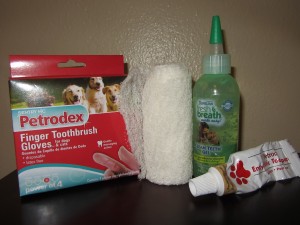
One of the most frequently asked questions I get from new Pommy Mommies is, “How old will my Pomeranian get to be?” or, essentially, “How long do Pomeranians live?” Honestly, I hate answering this question because there’s no one definitive answer. Most experts agree that Pomeranians live between 12 and 16 years, but I know people whose Pomeranians have lived to be 20, 21, and even 22. That’s literally more than a generation! How amazing is that?
So, what factors influence a Pomeranian’s lifespan? Let’s explore the many elements that can impact your Pom’s longevity.
Factors Affecting a Pomeranian’s Lifespan
While the average lifespan is 12 to 16 years, various factors could shorten or extend your Pomeranian’s life expectancy. Understanding these factors can help you provide the best care for your furry companion.
Size Matters
 Pomeranians are part of the small dog breed category, and experts suggest that smaller breeds tend to live about 1.5 times longer than larger breeds. The theory is that larger bodies require more energy; like any machine, they wear down faster. For example, a 140-pound Great Dane’s heart works much harder than a 7-pound Pomeranian’s, contributing to the shorter lifespan of larger dogs.
Pomeranians are part of the small dog breed category, and experts suggest that smaller breeds tend to live about 1.5 times longer than larger breeds. The theory is that larger bodies require more energy; like any machine, they wear down faster. For example, a 140-pound Great Dane’s heart works much harder than a 7-pound Pomeranian’s, contributing to the shorter lifespan of larger dogs.
Gender Plays a Role
Interestingly, just as in humans, gender plays a role in a Pomeranian’s lifespan. Female Pomeranians generally live about a year or two longer than their male counterparts. Why? Some say it’s because females are less stressed and are more laid-back, while males may stress out more about things like food or territory. Whatever the reason, the difference in lifespan between genders is something to keep in mind.
The Impact of Genetics
As a strong advocate for rescue, I’ve seen firsthand how poor genetics can devastate a Pomeranian’s health. This holds true for all Poms, whether from breeders or rescue situations. Some Pomeranians are genetically predisposed to health issues like heart murmurs, seizures, luxating patellas, and collapsing tracheas. These health problems can undoubtedly affect their lifespan.
If you’re adopting from a breeder, ensure they conduct proper health screenings. And remember, never buy from a pet store that sources from puppy mills. Puppy mills typically provide zero health screenings for their dogs, leading to poor health outcomes for the puppies.
Vaccinations and Lifespan
Vaccinations also play a significant role in your Pomeranian’s health and longevity. Keeping up with their vaccine schedule while avoiding over-vaccination is critical. Under-vaccinating could expose your Pom to preventable diseases while over-vaccinating could lead to unnecessary side effects. A balanced vaccination plan set by your vet will help keep your Pomeranian healthy for years to come.
The Downsides of Miniature or “Teacup” Pomeranians

Courtesy of www.teacuppomeranian.net
Miniature or “Teacup” Pomeranians are bred to be much smaller than the standard breed, and unfortunately, this can shorten their lifespan. These tiny Poms often face health challenges due to their size, including a lack of bone density, which makes them more prone to broken bones. Additionally, many Teacup Pomeranians have weakened immune systems because of overbreeding. In contrast, standard-sized Poms (typically 7-8 pounds) tend to live longer, healthier lives.
Living Environment Matters
Your Pomeranian’s living environment significantly affects how long they’ll live. Stress is a significant factor in their overall health, just as it is for humans. A life filled with love, companionship, and peace will help extend your Pom’s lifespan more than one filled with chaos, neglect, and stress.
Your home should be a sanctuary for your Pomeranian. Avoid overly chaotic environments with too many people or pets coming and going. Keep noise levels low—Pomeranians have sensitive ears, so blaring TVs and radios can cause stress. A peaceful, calm environment is key to a longer, healthier life for your Pom.
Diet is Key
 A clean, healthy diet is one of the most critical factors contributing to your Pomeranian’s longevity. Avoid feeding your Pom food with fillers, artificial coloring, grains, wheat, or preservatives. Fresh, natural food is best. Personally, I prefer a raw diet for my Pomeranians, as it has worked wonders for their health. Additionally, remember the importance of clean air—Pomeranians’ tiny lungs are more susceptible to damage from secondhand smoke, so keep them away from harmful pollutants.
A clean, healthy diet is one of the most critical factors contributing to your Pomeranian’s longevity. Avoid feeding your Pom food with fillers, artificial coloring, grains, wheat, or preservatives. Fresh, natural food is best. Personally, I prefer a raw diet for my Pomeranians, as it has worked wonders for their health. Additionally, remember the importance of clean air—Pomeranians’ tiny lungs are more susceptible to damage from secondhand smoke, so keep them away from harmful pollutants.
Exercise and Activity Balance
Another common question is, “How much exercise does my Pom need?” Exercise is essential to maintaining a Pomeranian’s health, keeping their muscles strong, and preventing obesity. However, too much exercise, especially for puppies, can be harmful and impact their growth plates.
A 20-40-minute daily walk and a few active play sessions each week are perfect for maintaining your Pomeranian’s heart health and muscle tone. Striking a balance between exercise and rest will help ensure your Pomeranian stays fit and healthy without overexertion.
Dental Care: The Overlooked Lifespan Factor
 One of the most overlooked aspects of Pomeranian health is dental care. Regular brushing and cleanings should be as much of a priority as feeding and grooming. Pomeranians are prone to plaque and tartar buildup, leading to gum infections, tooth loss, and even difficulty eating later in life.
One of the most overlooked aspects of Pomeranian health is dental care. Regular brushing and cleanings should be as much of a priority as feeding and grooming. Pomeranians are prone to plaque and tartar buildup, leading to gum infections, tooth loss, and even difficulty eating later in life.
Good dental hygiene can extend your Pom’s life by helping them maintain proper nutrition. Regular brushing at home or annual dental cleanings by your vet will go a long way in keeping your Pom healthy.
The Importance of Spaying or Neutering
Spaying or neutering your Pomeranian can have life-saving benefits. Poms that aren’t altered are at a higher risk for cancer and other illnesses related to their reproductive organs. Having your Pom spayed or neutered can reduce the likelihood of these diseases, allowing your furry friend to live a longer, healthier life.
So, How Long Can Your Pomeranian Live?
So, how long can your Pomeranian live? While the average lifespan is 12 to 16 years, many factors, including size, gender, genetics, living environment, diet, exercise, and dental care, all play a role in determining your Pom’s lifespan. Paying attention to these factors and providing your Pomeranian with love, care, and a peaceful environment can help your furry baby live a long, healthy life—possibly up to 20 years or more!
While there’s no exact answer to the question, your Pomeranian can live a happy, healthy, and fulfilling life right by your side with proper care.
Related Posts:
Tea Cup Pomeranians: Understanding These Adorable Tiny Dogs
Why Pomeranian Dental Care Is Vital for Your Fur Baby
A Proper Pomeranian Diet: Keeping Your Pom Healthy and Happy
